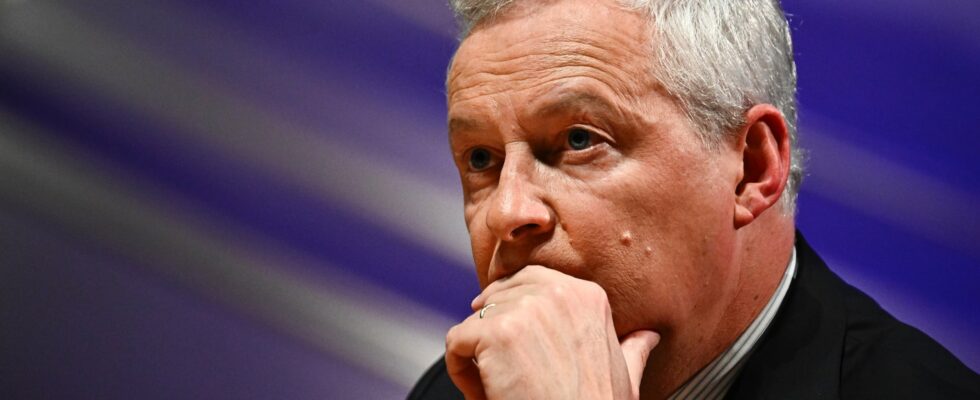Of course, the party is great. The popular jubilation, the shower of tricolor medals… And this blessed Olympic time during which political quarrels are made mezza voce before the appointment of a new head of government from mid-August. In the meantime, at Bercy, Bruno Le Maire, who has already packed his bags, continues to polish his record. At the beginning of the week, the statisticians of the INSEE gave him an unexpected parting gift by publishing the growth figures for the second quarter of 2024: + 0.3%, a performance higher than expected knowing that the result for the first quarter was also revised upwards (+ 0.3% instead of + 0.2%). At mid-year, and taking into account the momentum of 2023, the growth carryover for 2024, as economists call it, already reaches 1%. In short, even if activity stagnates in the second half of the year, Bruno Le Maire will have reached the objective set out in the draft finance bill for 2024. “France will outperform for the second consecutive year, it is a remarkable result,” the minister immediately congratulated himself.
Except that Bruno Le Maire is a bit like the motorist who praises the beauty of the landscape while looking in the rearview mirror. Since the spring and particularly since June, the business climate in France has darkened significantly. “The signs of wait-and-see attitude and weakening of the productive sector are multiplying,” warns Bruno Cavalier, chief economist at Oddo BHF in a recent note. The Banque de France indicator that tracks the feeling of uncertainty among businesses jumped at the beginning of July, a rise similar to that observed in the spring of 2022 after the invasion of Ukraine and the start of the energy crisis. All INSEE surveys – in industry, retail trade, services and construction – report a pronounced drop in business prospects.
“Apart from during the pandemic, a decline of this magnitude has only been observed during major shocks: March 2022 with the war in Ukraine, October 2008 at the time of the global financial crisis,” worries Bruno Cavalier. The latest alarm signal, the survey by the French Association of Corporate Treasurers finally points to a very sharp deterioration in corporate cash flow, at its lowest since the summer of 2020! “The possibility of a recession is indeed on the agenda,” fears economist Véronique Riches-Flores.
The 2025 Budget, the great unknown
Obviously, the political shock of the dissolution and the leap into the unknown that resulted from the legislative elections partly explain this blow. And then the growth figures for the third quarter should benefit from an Olympic effect. A temporary surge, alas. Because this languor of growth does not only affect France. Germany is flirting with recession again – GDP fell by 0.1% in the second quarter – and across the Rhine too, the business climate has plunged while the risks of a redoubled trade battle with the United States in the event of a Donald Trump victory next November are terrorizing German employers.
In the meantime, this darkening of the economic outlook will complicate the construction of the budget for 2025. Regardless of the new tenant of Matignon and the political colour of his team. Because it will be necessary to build a macroeconomic framework – growth, consumption, investment, inflation – the foundations of the finance bill. Bruno Le Maire and the teams of the Budget Directorate have already done the work, but the copy is undoubtedly too optimistic.
However, less growth means less tax revenue (with unchanged taxation) and more spending, particularly social spending… So, in the end, more deficits. A vicious circle even though the European Commission has confirmed that France is subject to excessive deficit procedure. Even before presenting the draft finance bill for 2025, Paris will have to send its budgetary roadmap for the next five or seven years to Brussels on September 20. Reading the copy will tell us a lot about the sincerity of the next team.
